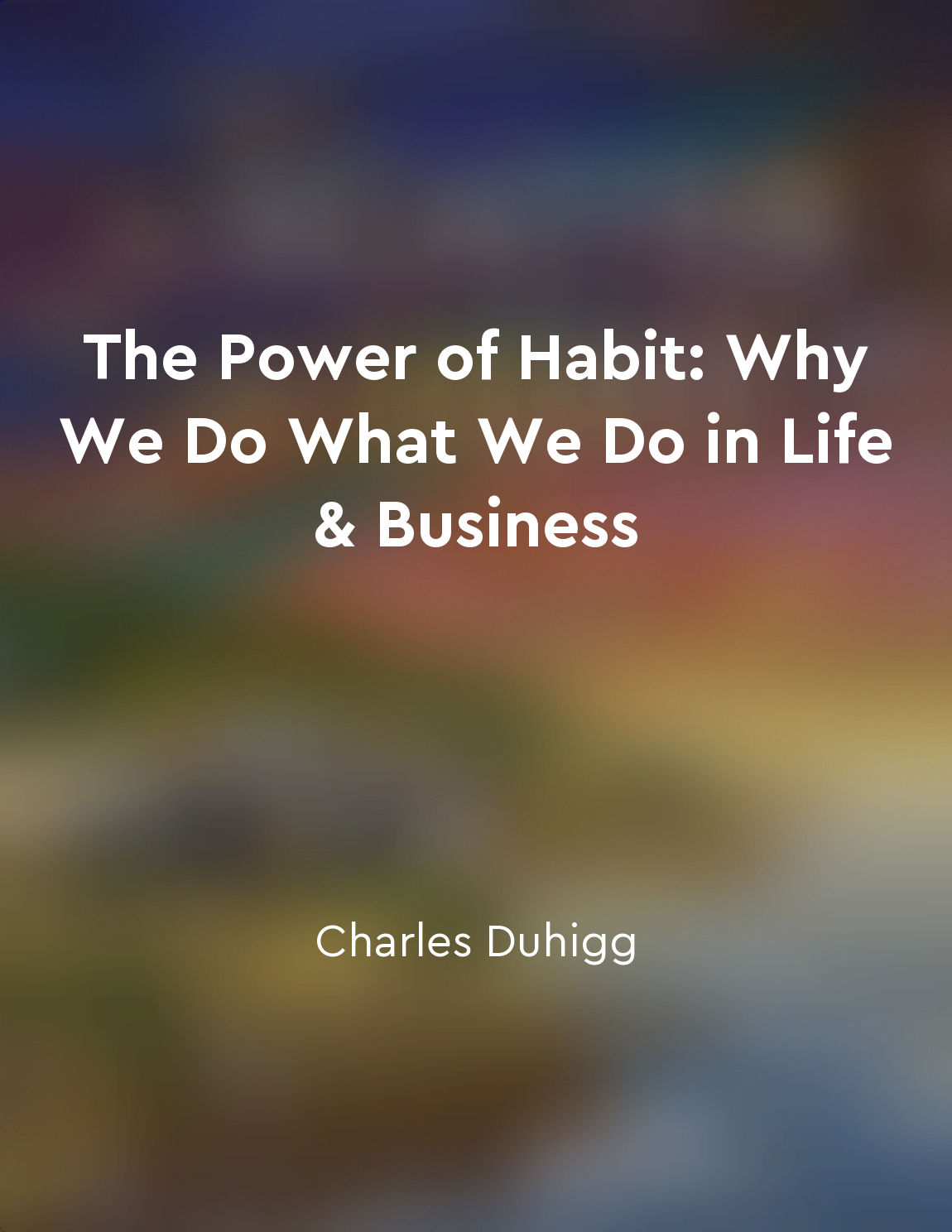Audio available in app
Changing habits requires understanding the cues and rewards from "summary" of Summary of "The Power of Habit" by Charles Duhigg by Lea Schullery
To change a habit, one must first understand the cues and rewards that drive the habit. Habits are formed through a three-step process: cue, routine, and reward. The cue is a trigger that tells your brain to go into automatic mode and which habit to use. The routine is the behavior itself, which can be physical, mental, or emotional. Finally, the reward is what your brain craves and is the reason why the habit loop is able to become ingrained in your brain. Identifying the cues and rewards that drive your habits is crucial in changing them. By understanding what triggers your habits and what rewards you seek, you can begin to alter your behavior. For example, if you want to stop eating cookies every afternoon, you must first identify the cue that prompts you to reach for a cookie. Is it hunger, boredom, stress, or something else? Once you have identified the cue, you can experiment with different routines to replace the cookie-eating habit. Maybe you go for a walk, drink a glass of water, or call a friend instead. After trying out different routines, pay attention to how you feel. Did the new routine satisfy the craving that the cookie fulfilled? If not, try a different routine until you find one that provides a similar reward. Changing habits is not easy, but with awareness and intentionality, it is possible. By understanding the cues and rewards that drive your habits, you can begin to replace unhealthy behaviors with more positive ones. So, the next time you catch yourself mindlessly engaging in a habit you want to change, take a moment to reflect on what triggered the behavior and what reward you seek. By doing so, you can start to break the habit loop and create new, healthier routines.Similar Posts
Bad habits thrive in a vague environment
When we are not clear about what we want or where we are going, it is easy for bad habits to take root and flourish. Vagueness ...
Change is often seen as a threat
When people are confronted with the prospect of change, they often react with fear and resistance. This is because change repre...

Seeking feedback from diverse sources can provide valuable insights
One of the key principles emphasized in this work is the importance of gathering feedback from a wide range of sources. Seeking...
Setting goals is crucial for success
Setting goals is a crucial element in achieving success in any area of life. Without clear and specific goals, we are like a sh...
Embrace change as an opportunity for growth
Change is an inevitable part of life. It is something that is constantly happening around us, whether we like it or not. Many o...
The brain relies on habits to conserve energy
The brain is a machine, a remarkable organism that operates on an intricate system of routines and shortcuts. These routines, k...

Habits are the invisible threads that shape our lives
Habits are the unseen forces that play a powerful role in our lives. They are the threads that weave together to create the fab...
Focus on identitybased habits for long-term change
To truly create lasting change in our habits, it is essential to shift our focus from performance-based habits to identity-base...
Willpower is like a muscle that can be strengthened over time
Think of willpower as a muscle. Just like your biceps or abs, willpower can be strengthened through consistent exercise. This c...

Reflection on setbacks can lead to growth in habit change
In the journey of habit change, setbacks are inevitable. When we encounter obstacles or fail to meet our goals, it can be tempt...
